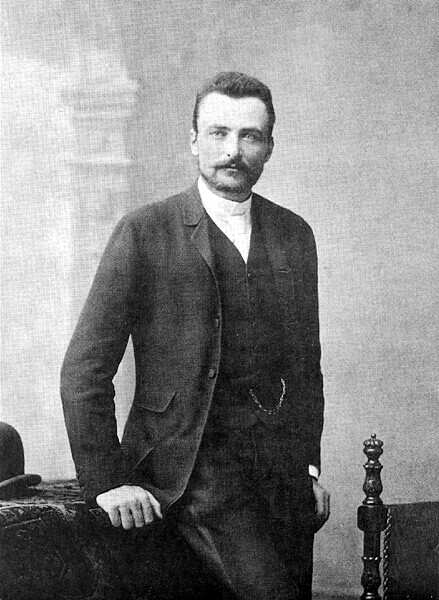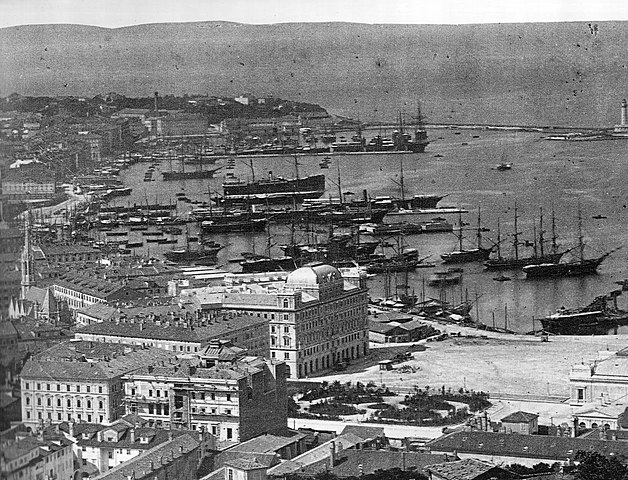Glen
Moderator
How big will this Hungary be?
Ethnic Hungary or Greater Hungary?
It's closer to greater Hungary than ethnic Hungary.
How big will this Hungary be?
Ethnic Hungary or Greater Hungary?
While the father of the Republic of Hungary may rightly be considered Lajos Kossuth, another who could rightly claim the title of Founding Father of the Republic is Peter Molnár, the second President of the Republic according to some historians, or the first according to others. Kossuth had been elevated to President of the Provisional Government of Hungary on his return from exile. However, Kossuth's failing health after his elevation to the post did not allow him much time or energy to participate in the drafting of the constitution. It was Peter Molnár who would lead this great work and see the nation through to the 20th century. Peter Molnár was a young dissident from a literary family (Hungarian on his father's side, Slovakian on his mother's side) in the Austro-Hungarian Empire who became radicalized against the constraints and anti-individualism of Korsgaardianism as it became the guiding philosophy of the ancient regime. Imprisoned on numerous occasions, most recently at the outbreak of the Global War as a 'potential security risk', Molnár was among the prisoners freed by the uprising. He rose to prominance for his articulate and clear way of expressing the ideals of the revolution, and his personal devotion to liberal individualist rights, in diametric opposition to the Korsgaardism that had come before. He chaired the drafting of the Hungarian Constitution, heavily borrowing from the American constitution but adapting it to the conditions as they prevailed in the Hungarian territory. Minority rights, such as for the Slovaks, and religious freedoms including for protestants and jews, were vouchsafed. The most controversial part of the constitution was female suffrage, but Molnár saw it as an essential step forward for the nation. Kossuth died before the completion of the constitution, and Peter Molnár was raised in his place as the second President of the Provisional Government. He subsequently won the first Presidential Elections under the new constitution. As president, he counseled reconciliation with the landed classes and former Korsgaardist bureaocrats, bringing to a halt the backlash and persecution these former masters of Austria-Hungary (though many of the more prominant of the former regime were banned from public office for years, the restrictions not being eased until the 20th century). Although a classic liberal himself, Peter Molnár sought to position the Hungarian Republic as a good and honest neighbor, interested in trade and cultural exchange regardless of prevailing political party of his neighbors (particularly important in the case of Russia). Molnár also saw to it that Hungary was one of the first nations of Eastern Europe to embrace the Poe Plan to bolster the post-war economy. He also sought to keep Hungary truly neutral, much in keeping with the model set over a century before by George Washington. However, much as Vegetius counseled, Peter Molnár led his government to build up a strong defensive military (referred to as the Hungarian Legion, purposely mirroring the name of the American military). It is interesting to note that he also was a strong proponent of air power, building up an airship force for the military and even promoting a civilian air service. Several of the younger officers from the former Austro-Hungarian navy would migrate to the air services, giving it a decidedly nautical feel and terminology.
For these and so many other reasons, many historians consider Peter Molnár as the man who created the Republic of Hungary.

Glen
I don't think this will be very practical. The early US was isolated from any real threat by the Atlantic and, as long as it had decent relations with the UK, the RN. Hungary is stuck in the middle of a very complex and highly developed continent and hence is going to need allies to secure its position. Especially since it is '-> greater Hungary' with all that implies in terms of large minorities and territories that neighbours have claims on.
Steve
A fair point. As counterpoint I suggest you consider the case of Tito's Yugoslavia and the nonaligned movement.
Glen
Good point. Possibly not the same as that was in a bi-polar world so it was a little easier but does show that its not impossible. However think things could get hairy for Hungary if it tries to be totally neutral. Could be that it seeks agreement of the major powers for its neutrality. Classic example here that comes to mind is Belgium, which worked for nearly a century but then ran into problems.
Might also depend on what parts of greater Hungary are included. For instance does it have a realistic coastline or has Dalmatia ended up with Austria or elsewhere. If it hasn't got a link to the seas at this point that puts it at something of an economic disadvantage. Although the development of railways is countering this somewhat.
Steve
For these and so many other reasons, many historians consider Peter Molnár as the man who created the Republic of Hungary.

And he really was quite a dashing young fellow to boot huh!
Where did you get this pic if I may ask?
Which part - the British or the French?
And he really was quite a dashing young fellow to boot huh!
Where did you get this pic if I may ask?
Both I would like to hear.
For these and so many other reasons, many historians consider Peter Molnár as the man who created the Republic of Hungary.

I am glad - What an I say? Those Magyars like their leaders suave.Ha ! And to top it off, my fictional counterpart is a fairly handsome chap. I approve.

Yeah it just sot of developed that way. It was fun and tied up some stuff while providing some teasers.Thanks, Glen.I had no idea it would be such an extensive cameo.
At least you've got Hungary covered now. Hungary succesfully pulling off a turn to republicanism in the 19th century is a rare sight in AH, so it's all the more interesting that your TL includes such a peculiar new state.
I'm glad it's a clearly reformist and democratic country - it seems to be on the right course for now.
P.S. Love the air force references.Well, since the country is coastless, building up an air force makes sence (it's pretty much the same as in OTL, when most of the new, post-WWI central European countries tried to compensate for the lack of naval power by building up the aerial branches of their militaries).
I am glad - What an I say? Those Magyars like their leaders suave.
Yeah it just sot of developed that way. It was fun and tied up some stuff while providing some teasers.
One hopes they stay on it...
Thanks it seemed like something fun and logical. I didn't know that it happened OTL like that after WWI so that is some nice confirmation!
Crap, I missed my cameo, and Greater Neutral Hungary?
God I love this TL.
Yeah. Though there's a bit of dark irony in there : István Tisza was quite an anti-minority politician for most of his career, quite the opposite of his physical doppelgänger from your ATL.The choice of the photograph was purely arbitrary on your part, but I find it hilarious that you've accidentally picked Tisza's photo.

Yes inspiration happens that way sometimes and you get a great product.Well, I'm glad it was kind of a useful cameo for the purposes of the TL. I've experienced something similar in March while thinking of a backstory for the flag I made for the Weekly Flag Challenge. Before I realized it, the backstory turned into a short little TL (and I plan to remake and expand it in the future).
Well, I am glad you found it! I have thought in the past about some sort of notice but I never seem to get to it.On a related note, I nearly forgot about my request for a cameo and only discovered it among the newer posts by accident, while looking for a different thread. Probably the best surprise I've had all day.
Indeed.
Interwar Czechoslovakia's air force even had the motto "Air is our sea" - they took the notion quite seriously.
